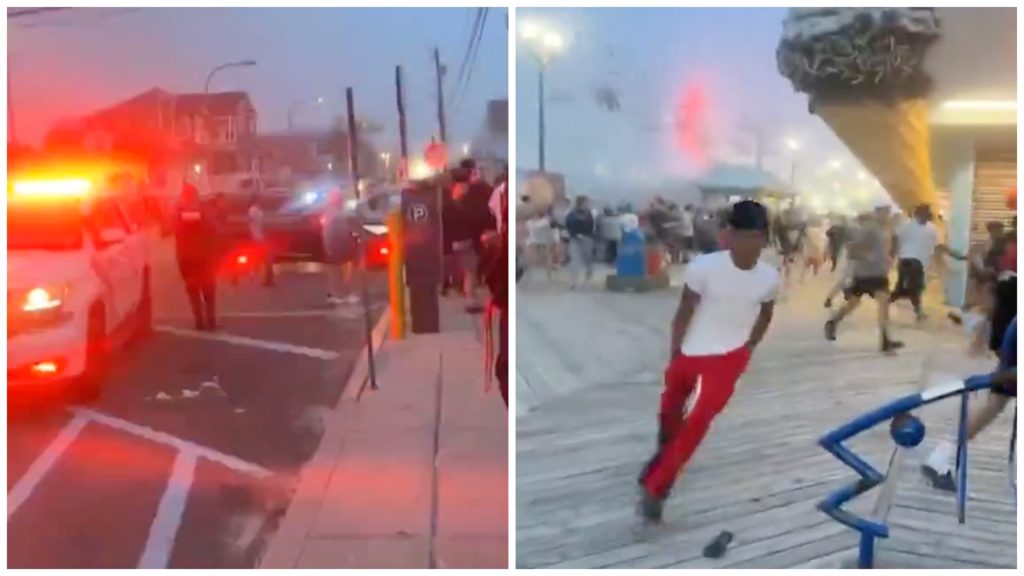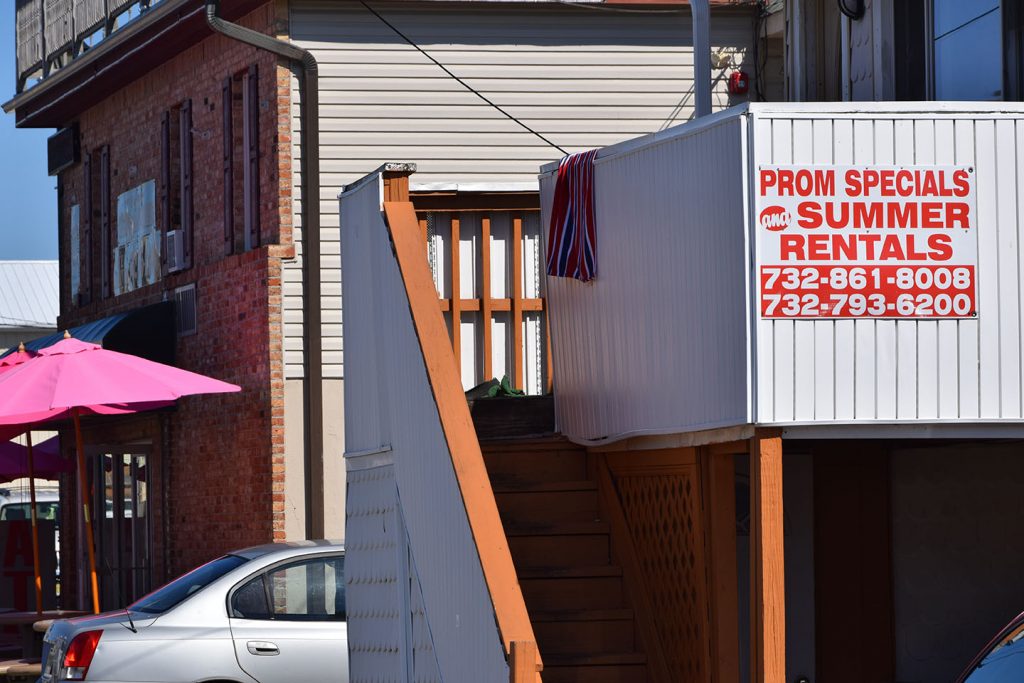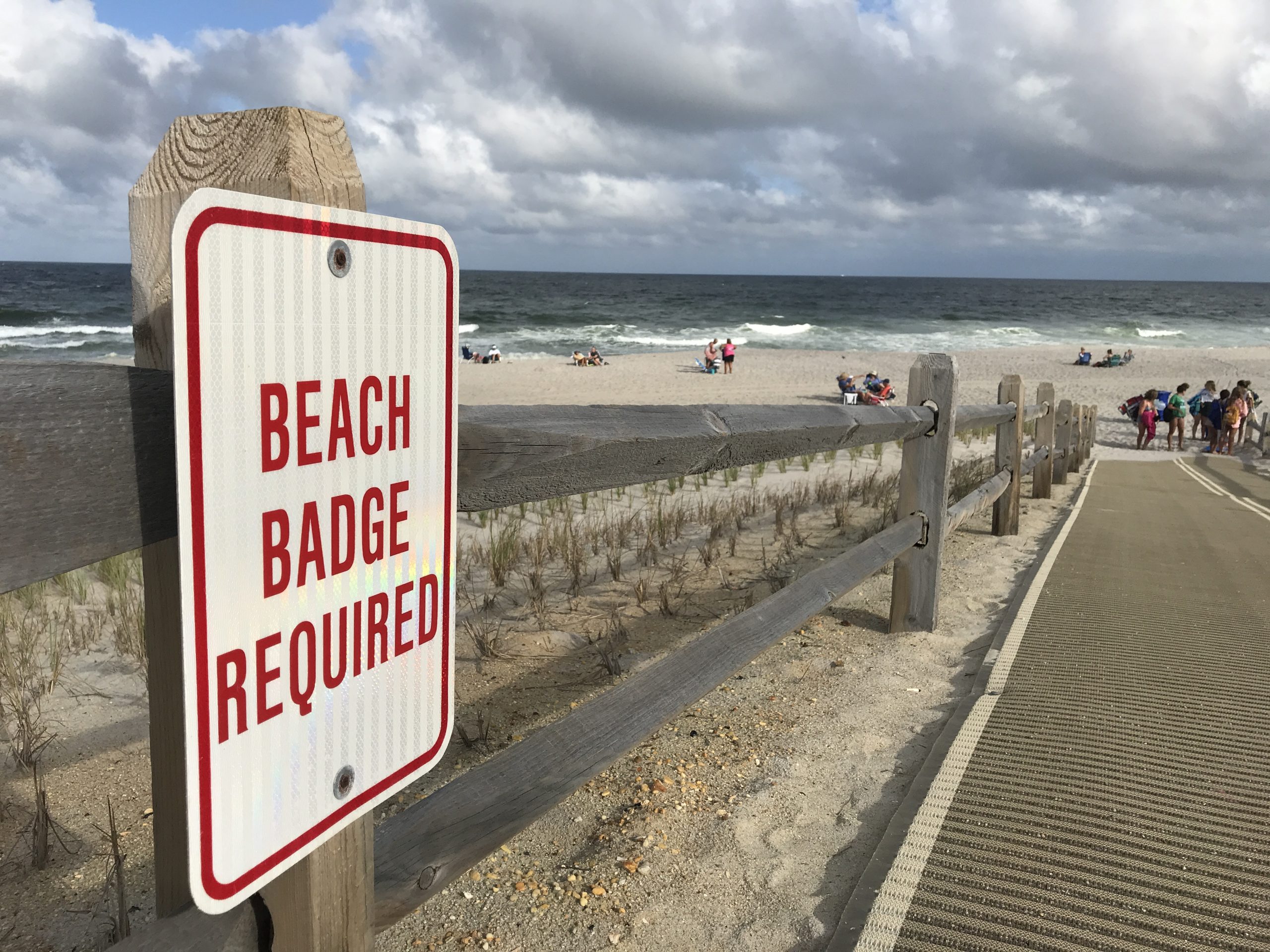Following the raucous display that was representative of a sad reality that played out in resort towns up and down the east coast on Memorial Day weekend, Jersey Shore mayors are pushing for legislation that would help curtail foul behavior on the part of juveniles. Meanwhile, locally, officials are continuing what is often a lengthy and complex effort to revoke the mercantile licenses of the owners of properties that are rented to troublemakers, and enforce a new ordinance that holds parents responsible for their children’s misconduct.
“We’ve had conversations with the governor’s office and we’ve also had conversations with Senator [Michael] Testa (R-1) from Cape May County,” said Mayor Anthony Vaz. “There is legislation that is going to be introduced, dealing with people under the age of 18, and what they can and can’t do.”
Mayors of Shore towns from Long Branch to Cape May have participated in conferences over the issue of juveniles creating havoc on boardwalks during mass gatherings that boiled over on Memorial Day weekend. In Seaside Heights, a panic resulted when police believe someone threw firecrackers onto a crowded boardwalk and sparked an unfounded cry of gunshots having been fired. In Ocean City, a stabbing played out during a chaotic scene there, and Wildwood was forced to declare a state of emergency due to “civil unrest” after fights broke out among groups of teens.
Many mayors and police chiefs, as well as state law enforcement representatives, have blamed New Jersey’s juvenile justice reform laws passed in 2020 and 2021 for the dangerous scenes that played out, saying police officers’ hands are tied, with officers themselves facing criminal charges if they detain or give certain orders to juveniles. The reform laws, ostensibly aimed at reducing the number of inner-city youth who find themselves involved in the court system at a young age, have had unintended consequences in Shore towns where juveniles know the limitations of police powers, officials argue.
“It’s going to take time – it has to go through the state Assembly and the [state] Senate, and they have to collaborate and make sure that whatever is written suits our needs,” said Vaz. “They’re aware of our issue – it’s not dead by far. This is not the first time; last year was also a problem, so it’s historical for the last two years and we don’t want it to continue next year.”
Similar laws have come under fire in other states, and Memorial Day weekend as a whole saw trouble in resort communities in Massachusetts, Delaware, North Carolina and Florida. In Seaside Heights, however, the problems were exacerbated by the unfounded report of gunfire, which caused a panic, and led to negative press coverage as the officials have gone to great lengths to shed the borough’s reputation as a party town in favor of a more traditional, family-friendly resort community.
Local Crackdown
This year, officials drew an early line in the sand. Police began utilizing the power of local ordinances to charge the parents of juveniles when their children commit criminal offenses in Seaside Heights, and the borough has aggressively worked to revoke the mercantile licenses of property owners whose rental units rack up three substantiated complaints regarding noise or disturbances.
“We have, over the last three weeks since Memorial Day, been giving summonses to parents,” said Vaz. “Now, the parent has to come to court.”
The idea to issue court summonses to parents of juveniles who violate the law began in Margate, Atlantic County, and has been replicated in Seaside Heights.
The statewide legislation that many mayors have been hoping to enact will soon be presented by an ad-hoc committee, though it is expected to face pushback from Democrats in the state’s urban districts where the initial push for reform laws originated. A compromise would require support from both political parties as well as Gov. Phil Murphy, who publicly brushed aside concerns over boardwalk incidents but, according to several officials Shorebeat has spoken with, has been consulting with Shore area mayors in recognition of the issues.

Altercations posted to social media during the 2023 Memorial Day weekend in Seaside Heights, N.J. (Source: Instagram/TikTok)
Seaside Heights, for its part, is in the process of integrating new software that will allow reports of incidents in rental homes to be more easily synced between police and code enforcement officials, streamlining the process of revoking mercantile licenses from the owners of property owners who repeatedly rent to troublesome tenants.
“I will never come back Memorial Day weekend,” one resident said at a borough council meeting Wednesday. “We’ve had this house in our family over 100 years, and I think it’s time for me to look elsewhere because I can’t take all the rentals. There’s no management, and I can’t fight everybody.”
The mayor immediately asked for action on an “animal house” property near the resident’s home, where she said cameras showed 30 people trespassing when she was not home. The issue of out-of-control rental properties largely subsides after schools let out for the summer and families replace so-called “prom rentals” and graduation rentals that attract trouble. But the negative press and wild photos and videos of such incidents can impede the efforts – largely successful – to redevelop the borough’s housing stock, improve the boardwalk and crack down heavily on quality-of-life issues.
Vaz said the borough has also urged parking enforcement officers, who do not hold police power, to be visible and present in marked vehicles on local streets and be on the lookout for opportunities to call sworn law enforcement when they spot a dangerous situation playing out.
“We have authorized the meter officers to drive and refer calls,” he said, adding that the borough was overwhelmed with juveniles on the holiday weekend, many of whom were dropped off in town and allowed to roam unsupervised.
“What’s upsetting to me is that we thought we were ahead of the game, having evaluated this from last October,” said Vaz. “We had more law enforcement than ever, and still the problem existed. So we need legislation that’s going to untie the police’s hands and summons the parents.”
Seaside Heights officials quickly got the fracas on the boardwalk under control and implemented an emergency 10 p.m. teen curfew that led to “99 percent” of juveniles complying.
“The biggest thing that happened were the words ‘gun shots,'” said Vaz. “That’s what caused a bigger problem than the problem that existed. We looked, and we saw the Boulevard, and it hadn’t looked like this in 50 years with the traffic. We couldn’t get the cars moving because, as cars were leaving, more cars were coming in.”
The curfew worked as intended.
“Fifteen minutes after we enacted it, it was calm,” the mayor said.
Councilman Richard Tompkins said the borough will continue to be aggressive in shutting down rental properties where tenants cause disturbances, despite some property owners believing the town’s crackdown is too stringent.
“There are also complaints about how aggressive we are,”said Tompkins. “A good portion of them don’t live in New Jersey – they live in other places and they rent them out – and we’re aggressive to the point where they’re aggravated because we’re on top of them all the time.”
“With the three strikes rule, we’ll go after your mercantile license,” he vowed. “We want quality people to rent in this town; our whole agenda has been to make this a family town, and it’s difficult when you have these weekends because it hurts us. Even though it affects every [city], we’re striving so hard to become a family town, and it hurts.”
Borough Administrator Christopher Vaz said police officers have been instructed to fill out incident reports after responding to noise complaints and other troublesome scenarios and send them to the Code Enforcement office for potential administrative penalties regardless of whether summonses or arrests occurred at the scene.
“It doesn’t require a summons, it just requires three verified complaints, so a disturbance report filled out by a police officer is generally enough for the mercantile license aspect of it,” he said.
Likewise, Code Enforcement personnel will share their reports with police, and all will be integrated with the new software.
“It’s a constant battle, but Code Enforcement is on top of it, and I think they’re doing a great job,” Tompkins said.

Advertisement

Police, Fire & Courts
Cops: Juvenile Arrested After 118mph Joy Ride in Seaside Heights, Toms River Kills 2

Seaside Heights & Seaside Park
Seaside Heights OKs ‘Pedacycle’ Tours for 2025 in Revived Experiment

Police, Fire & Courts
Ocean County Sheriff Establishes Drone Command Center in Seaside Heights Amid New Video









